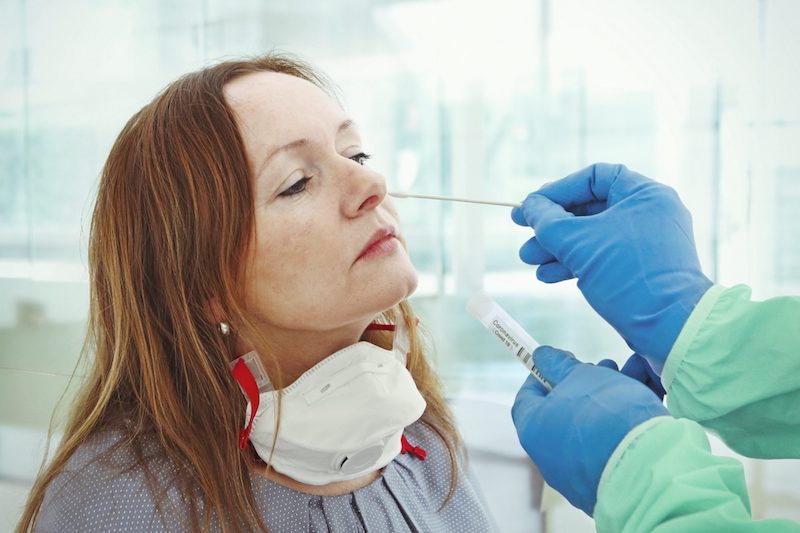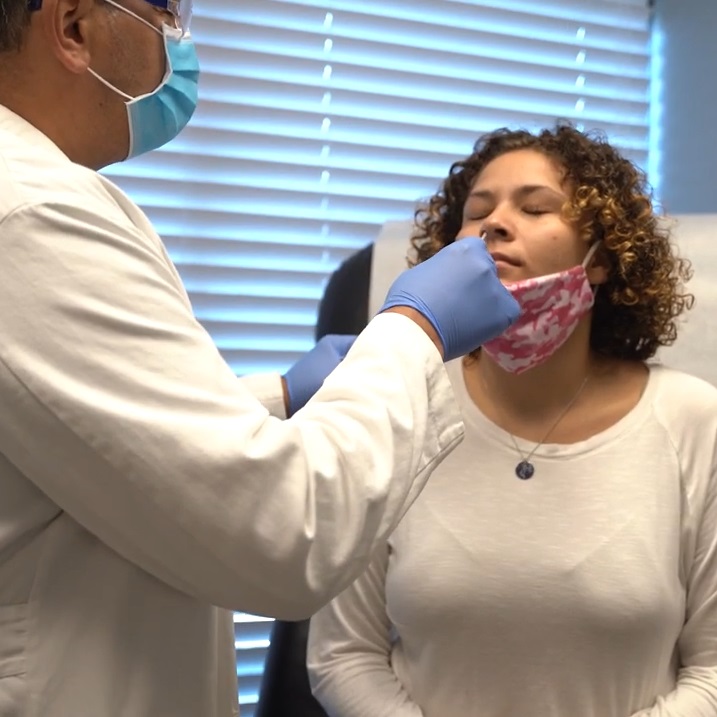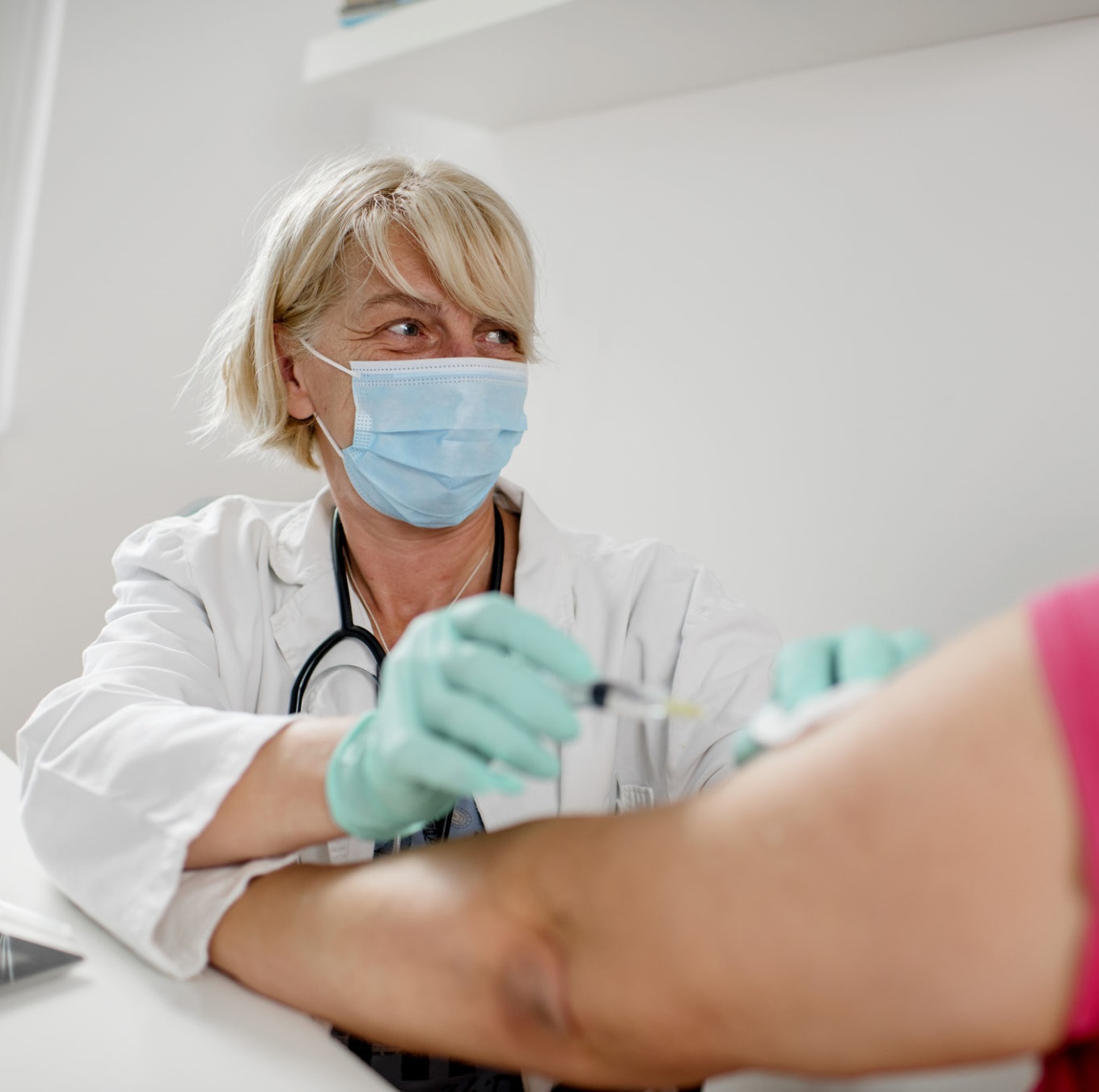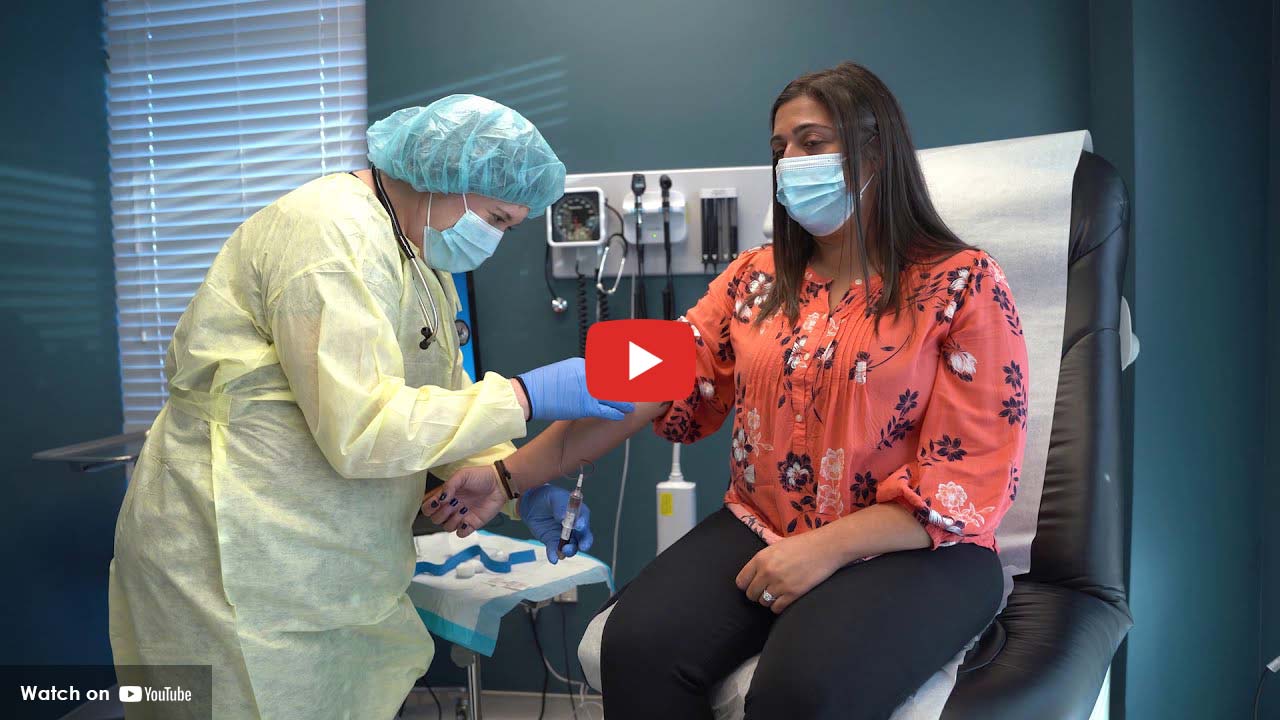COVID-19 Tests: Everything You Need to Know

June 04, 2020
Updated: 10/9/2020
As our communities continue to return to school, work and regular activities, we’re relying more on COVID-19 testing to help us keep risk at minimal levels.
In addition to PCR and antibody tests, “rapid tests” (also known as antigen tests) are now available at various places, from your doctor’s office to major retailers. It’s really confusing to understand if you should get tested, and what test you should get. Don’t worry, we’ve got you covered.
What types of COVID-19 tests are available?
The three kinds of tests available for COVID-19 are antigen tests, polymerase chain reaction (PCR) tests and antibody tests.
- An antigen test uses a swab of the nose or throat to collect a mucus sample. The sample is then tested on the spot to rapidly determine the presence of specific proteins that appear in individuals who are at the peak of infection, when COVID-19 presence in their body is the highest. Test results are usually available in a few minutes. However, it’s important to know that false negatives are more common with rapid antigen tests than with other tests, especially in people with no symptoms. In fact, if you don’t have symptoms, an antigen test probably isn’t right for you.
- A PCR test uses a swab of the nose or throat to see if someone has an active COVID-19 infection. PCR tests are typically sent to a lab and can take a few days for results. Rapid PCR tests also exist, however, there is limited availability and they are typically used by hospitals in emergent situations.
- An antibody test is a blood test to see if you had the virus at some point in the past, and have recovered by building up antibodies to fight the infection. Depending on the type of antibody test you’re getting, it will either be taken by blood draw or finger prick.
When to get a Rapid Test:
Rapid tests that are currently being marketed by urgent care centers, physician offices and major retailers can provide patients with quick confirmation of COVID-19 infection. Results are usually ready within 15 minutes. However, these rapid antigen tests are not as reliable as the PCR test.
Here’s who should get one*:
People with symptoms of COVID-19. Symptoms include:
- Fever
- Dry cough
- Shortness of breath
- Fatigue
- Muscle or body aches
- Sore throat
- Congestion or runny nose
- New loss of taste or smell
- Nausea / vomiting
- Diarrhea
Who should NOT get a rapid test:
- If you are free of COVID-19 symptoms, regardless of whether or not you have had first hand or secondary exposure to a COVID-19 positive person.
- People looking to confirm their status and return to work or school after fighting COVID-19.
- People looking to return to work or school after traveling who do not have symptoms.
- People without symptoms who are required to receive a COVID-19 test prior to surgery or an in-patient hospital stay. A PCR test is still the most accurate option.
A negative result from a rapid antigen test does not mean a patient is COVID-19 free. Research around rapid antigen test accuracy is still being gathered, but false negative results have been reported as high as 50% of the time. Therefore, any patient experiencing symptoms of COVID-19 should continue to quarantine and practice social distancing until their symptoms subside. If symptoms worsen, patients are encouraged to seek a PCR test. In most cases, PCR test results are available within a few days.
When to get a COVID-19 PCR test:
If you want to know if you currently have a COVID-19 infection, a PCR test is the most accurate test you can get. Here’s who should get one*:
- People with symptoms of COVID-19.
- People who are being admitted to the hospital for a medical procedure or surgery. Knowing if someone has a current COVID-19 infection helps health care providers plan accordingly, reducing the spread of the virus amongst patients and hospital staff.
- People with unique situations may be advised by their doctors to be tested. For example, if you have to return to work or other settings that may not allow for proper social distancing, your doctor may advise you get tested for the virus first, before entering an environment where transmission could occur.
*Everyone is different. Always speak to your health care provider first to determine if it makes sense for you to get tested.
When to get a COVID-19 antibody test:
Antibody testing (also referred to as serological testing) is a blood test that can detect if you were previously infected with COVID-19. The presence of specific antibodies suggests that you have been exposed and your body developed the blood proteins needed to fight the infection. You may want to consider an antibody test if:
- You want to know if you’ve had COVID-19.
- Your doctor has directed you to get an antibody test.
- You want to help COVID-19 patients by donating plasma for convalescent plasma therapy.
You should know that there are several pros and cons to antibody testing and you should always talk to your doctor about what tests may be right for you.
What to do when you get your results:

Next Steps & Resources:
- Call an Urgent Care Center to see if you’re a candidate for COVID-19 antibody testing, or to get a PCR test.
The material provided through HealthU is intended to be used as general information only and should not replace the advice of your physician. Always consult your physician for individual care.
Find a doctor near me
I Think I Have Coronavirus, Now What?

Coronavirus symptoms? Learn how to protect yourself and others. Get expert advice; call 800-822-8905 or use telemedicine.
COVID-19 Antibody Testing: Pros & Cons

COVID-19 Antibody Testing: Learn pros & cons. Understand your risk. Get tested at nearby Urgent Care. Call 800-822-8905 to schedule.
Find a doctor near me

How to Prepare for a COVID Test
Prepare for your COVID-19 test. Find testing sites, learn what to bring, and avoid common mistakes. Get helpful tips for a smoother experience.

Can You Get COVID Twice?
Can You Get COVID Twice? Learn about COVID-19 reinfection from Drs. Nehmad and Unuigbe. Get the facts and stay safe. Call 800-822-8905.

A Quick Breakdown of the 3 Different COVID Vaccines
Daniel Varga, M.D., chief physician executive at Hackensack Meridian Health shares some key differences and what you should consider when getting the COVID vaccine

Reduce Your Fear of Needles
A fear of needles can seem debilitating. Here are some tips to help overcome the phobia.

